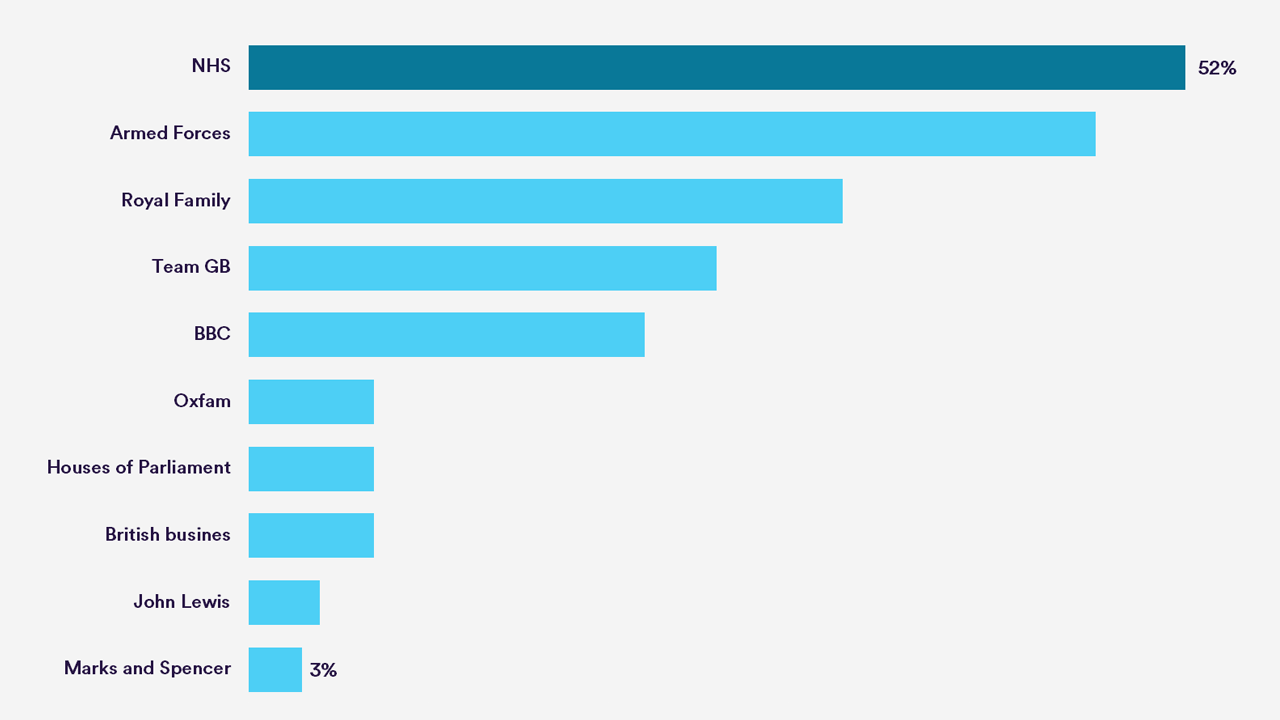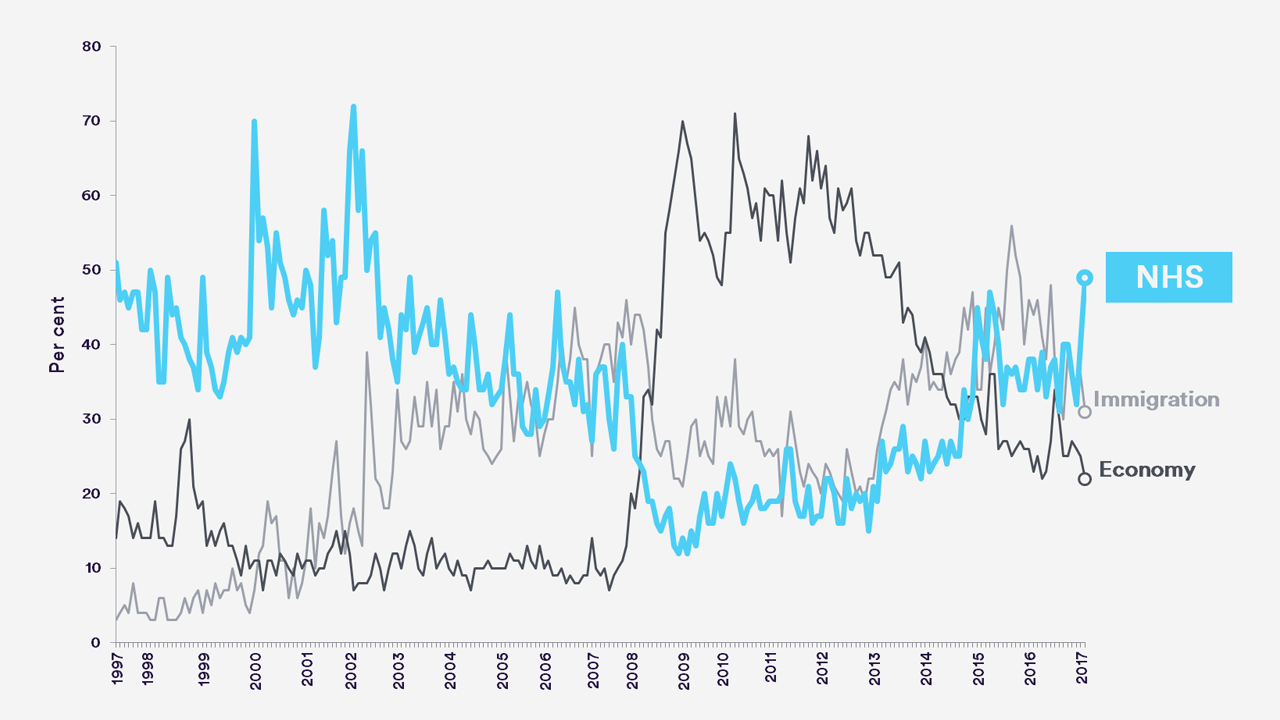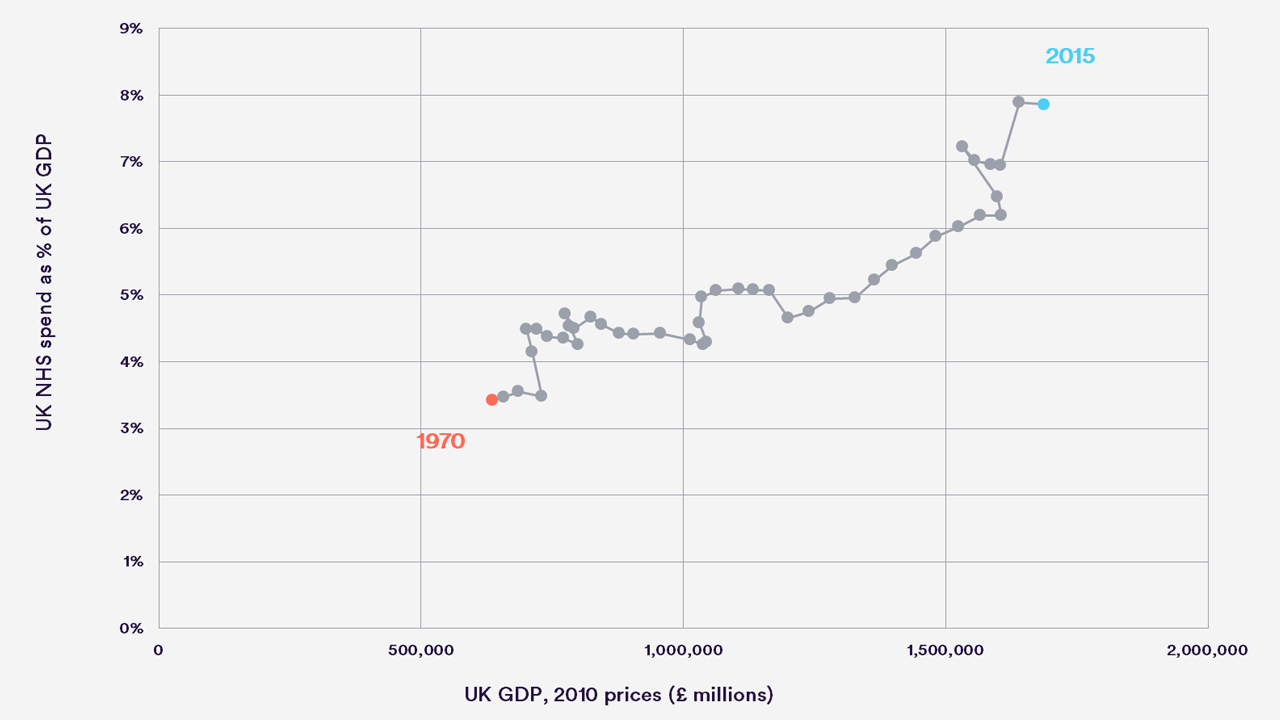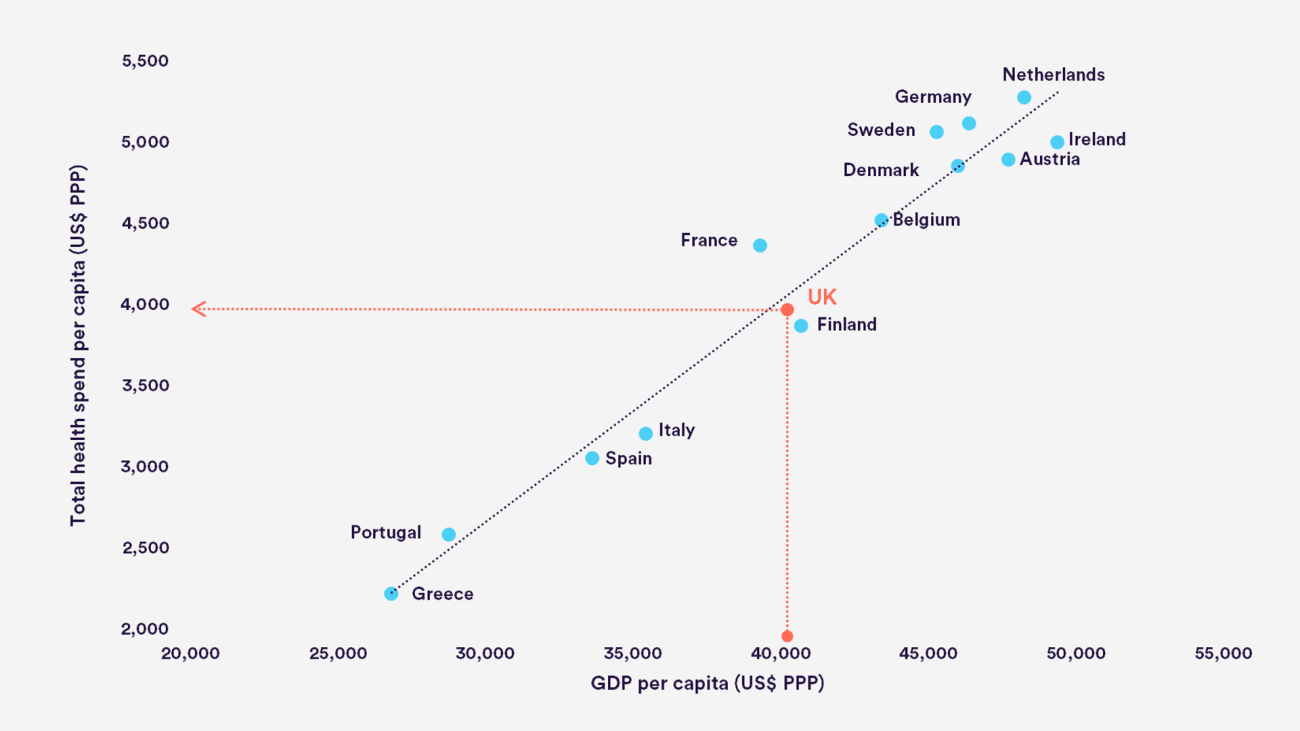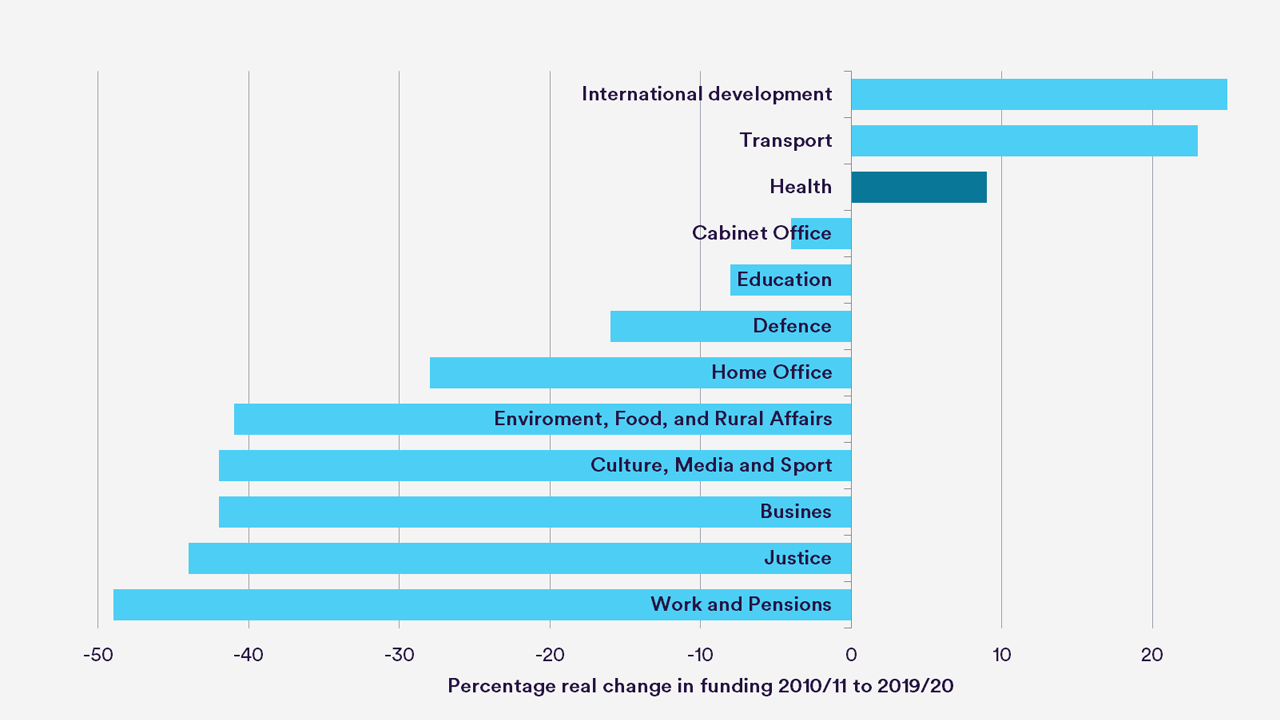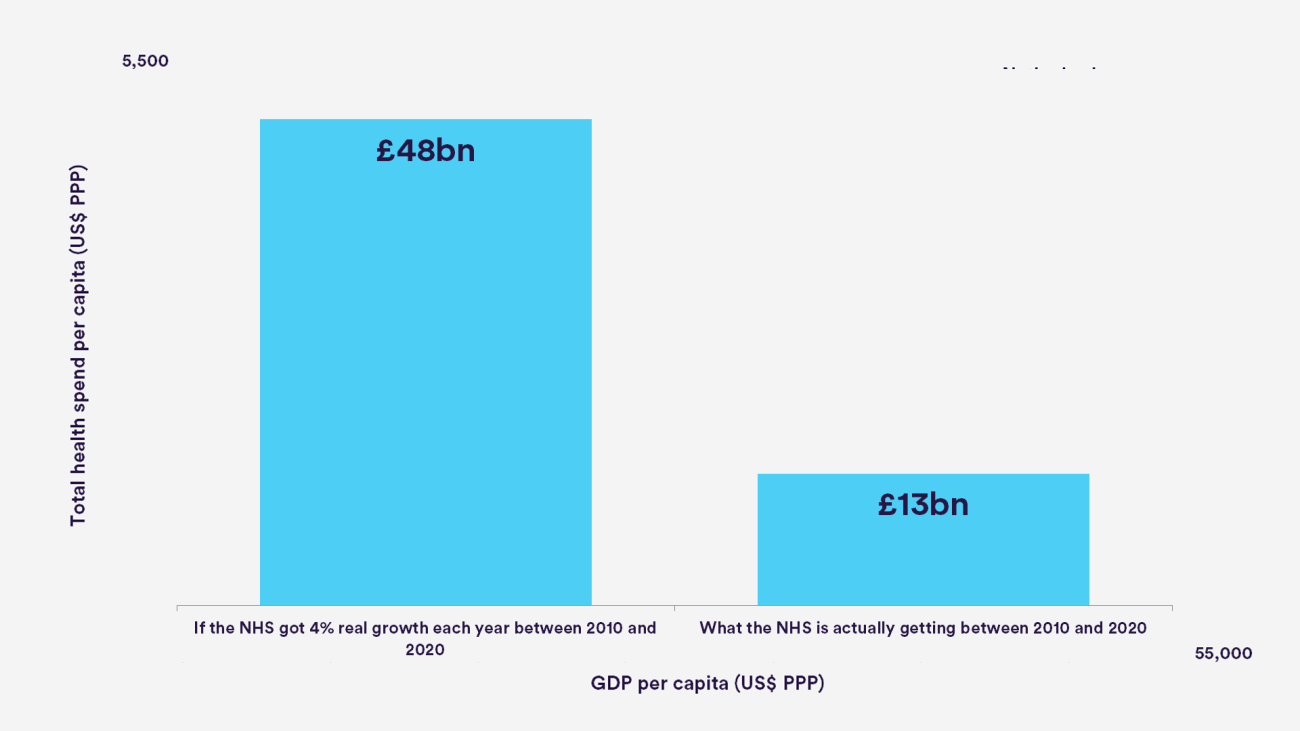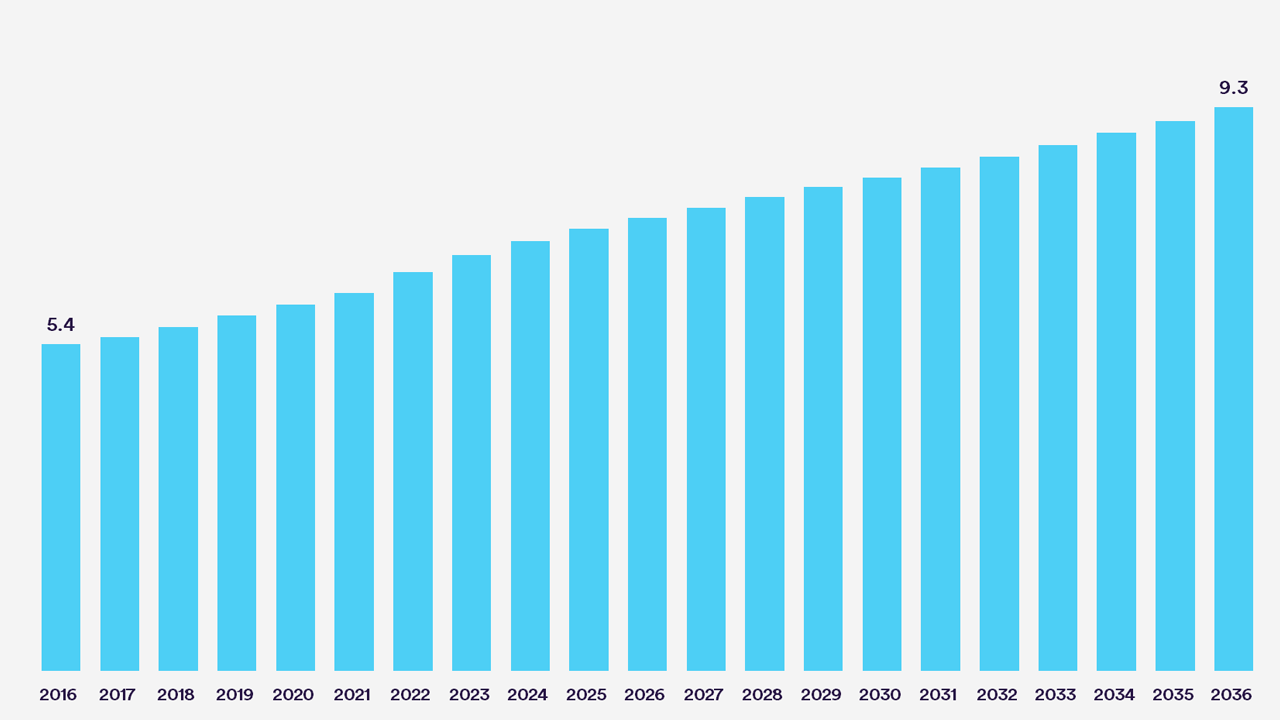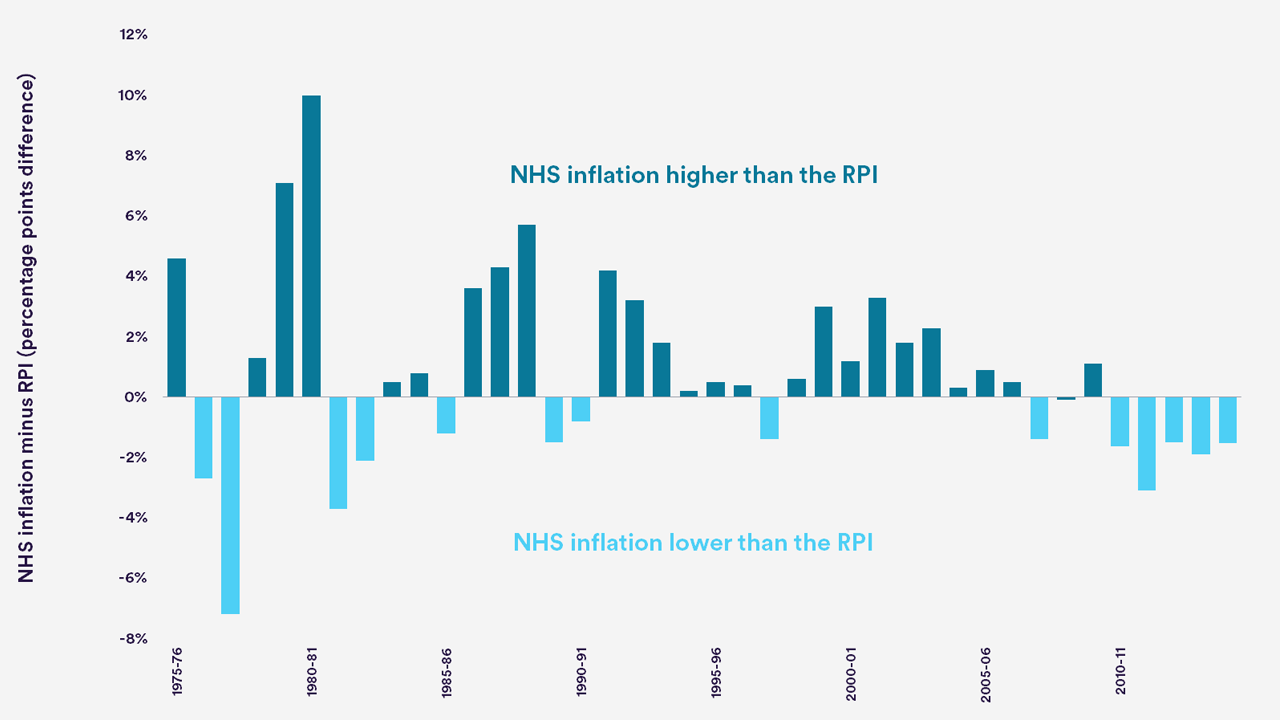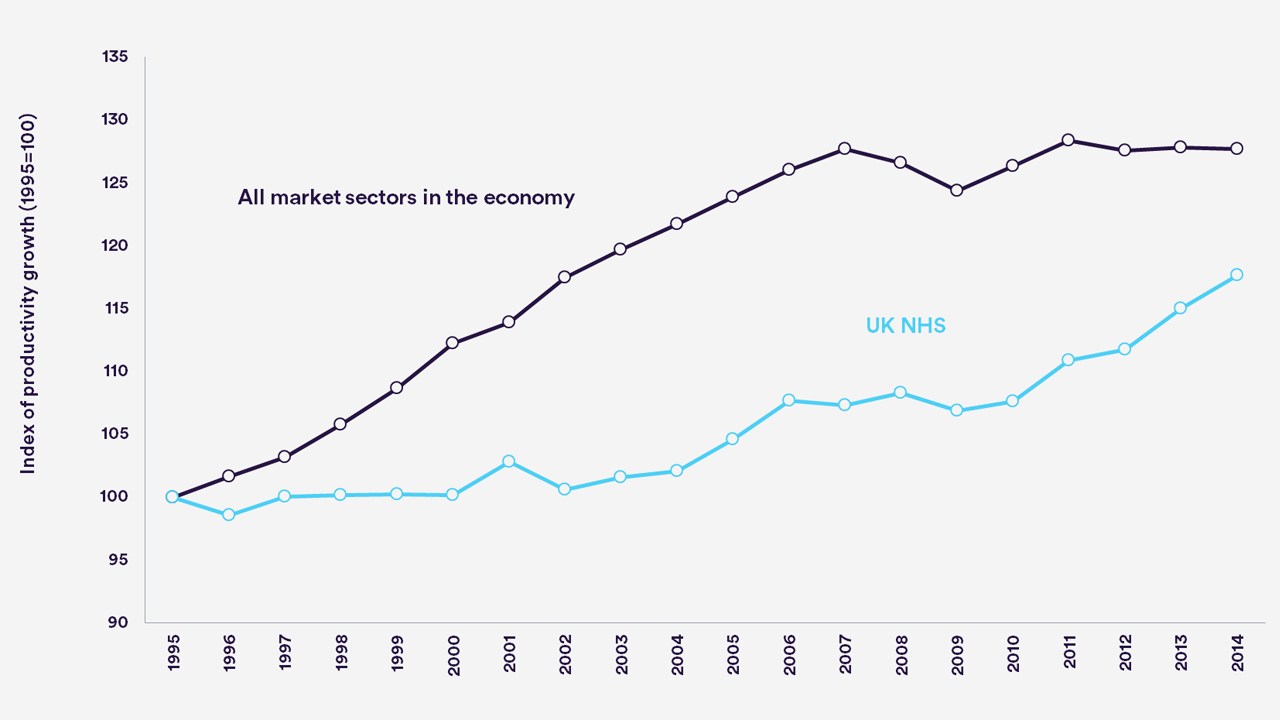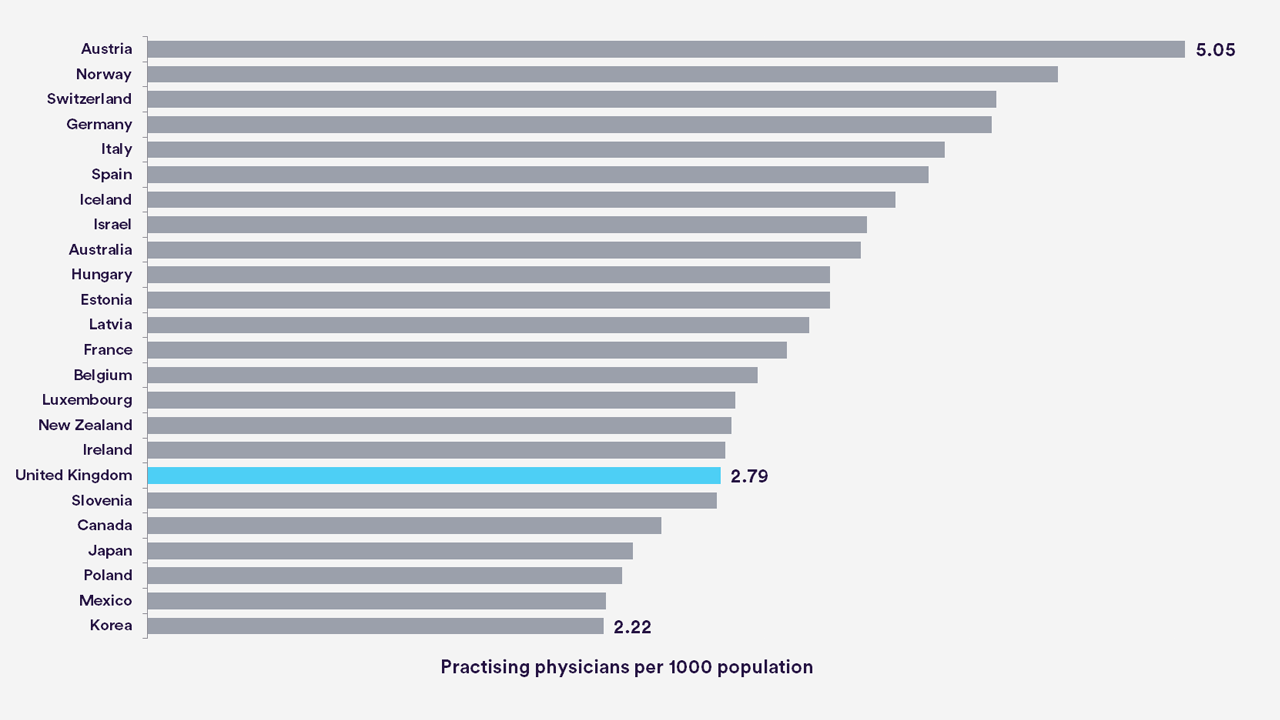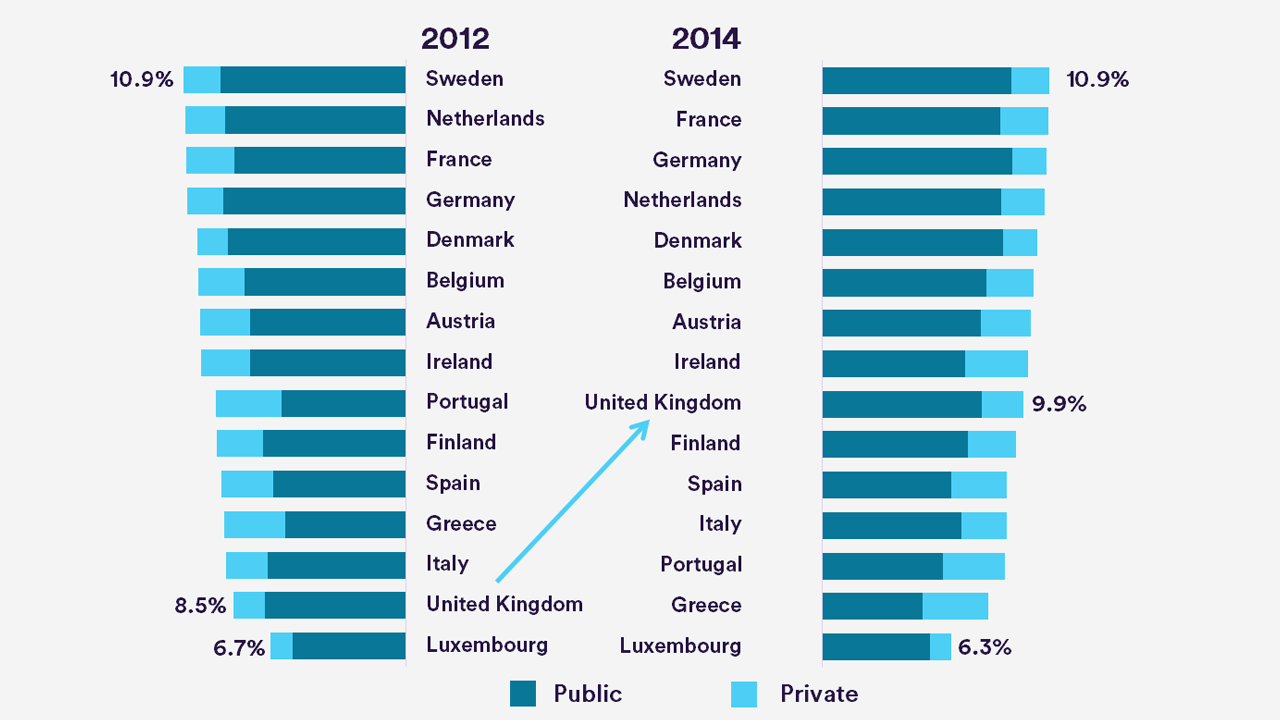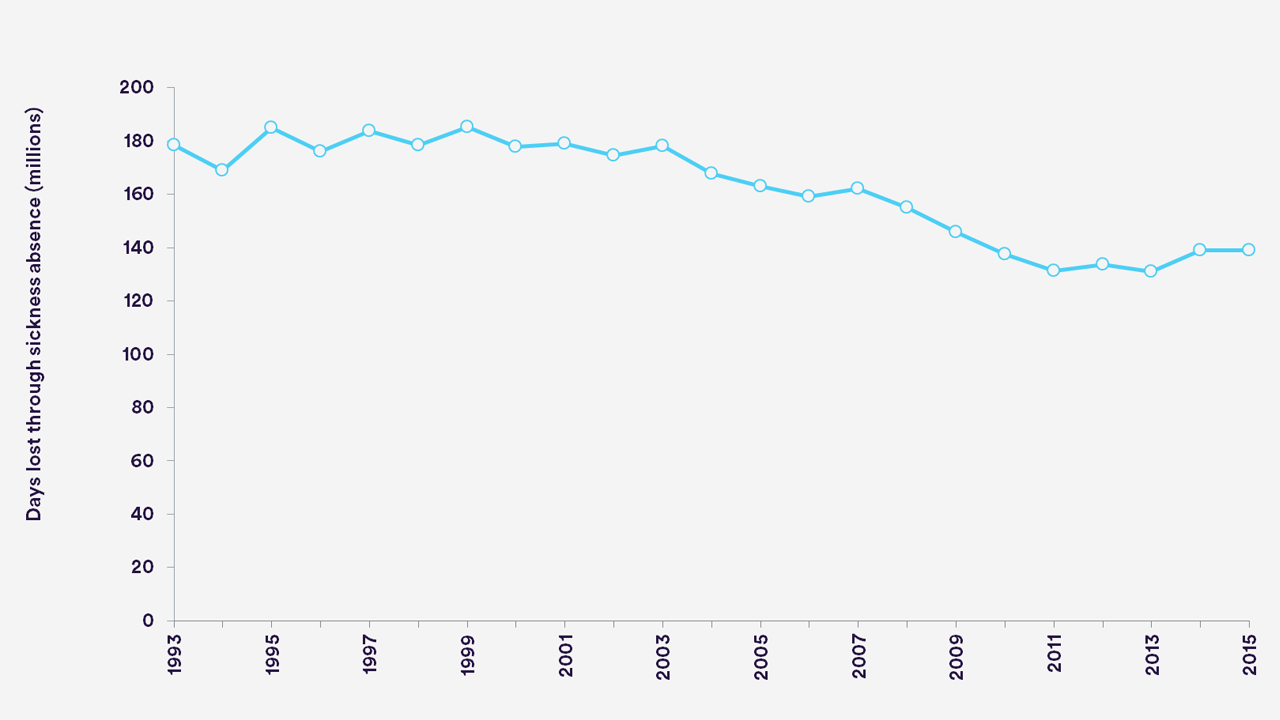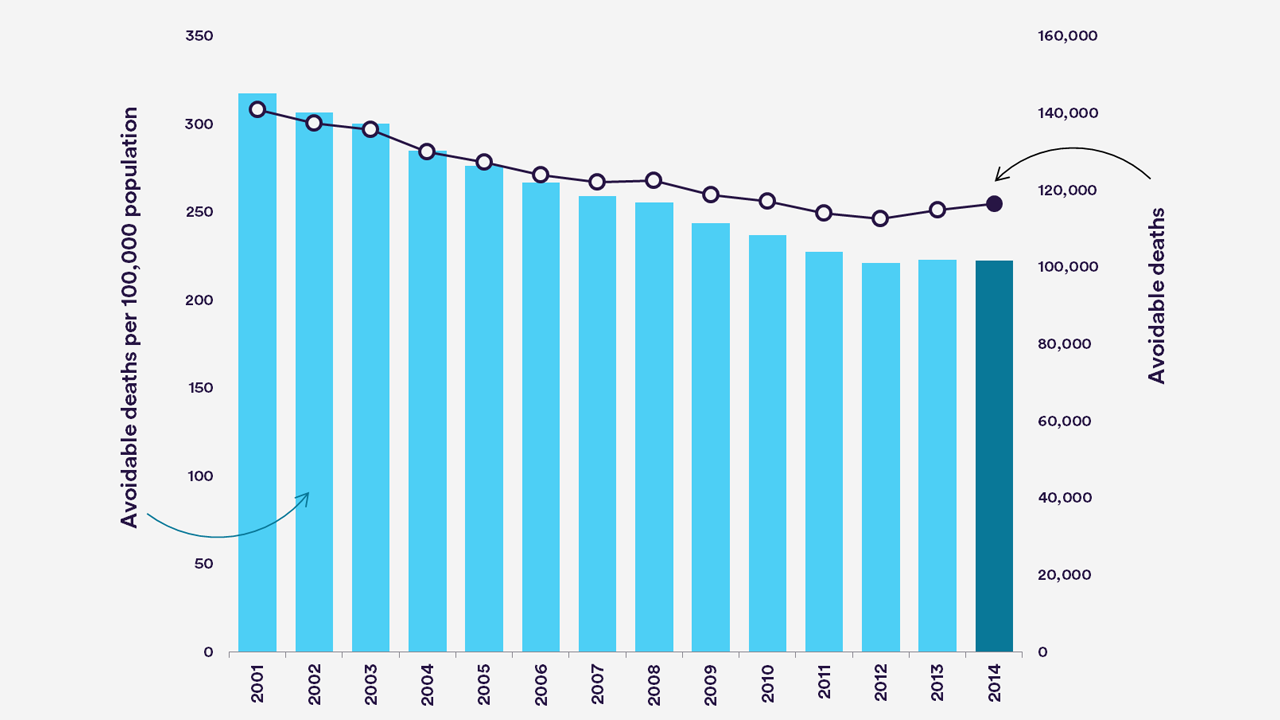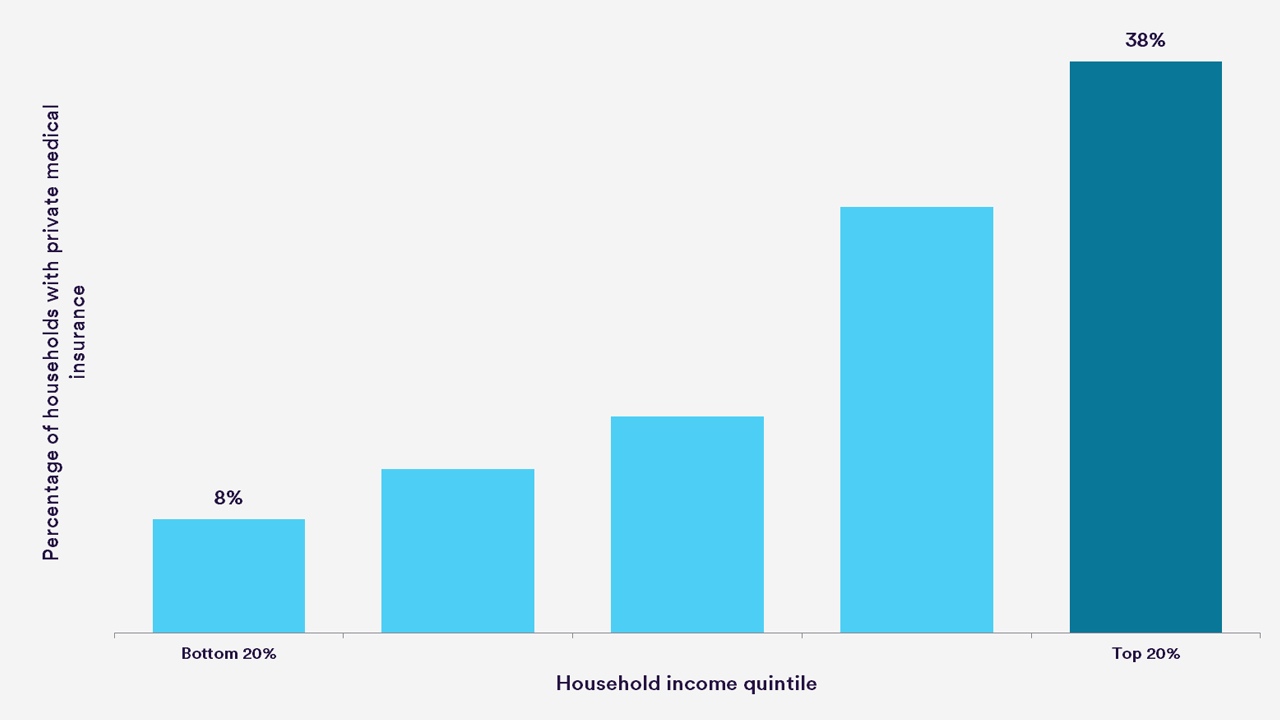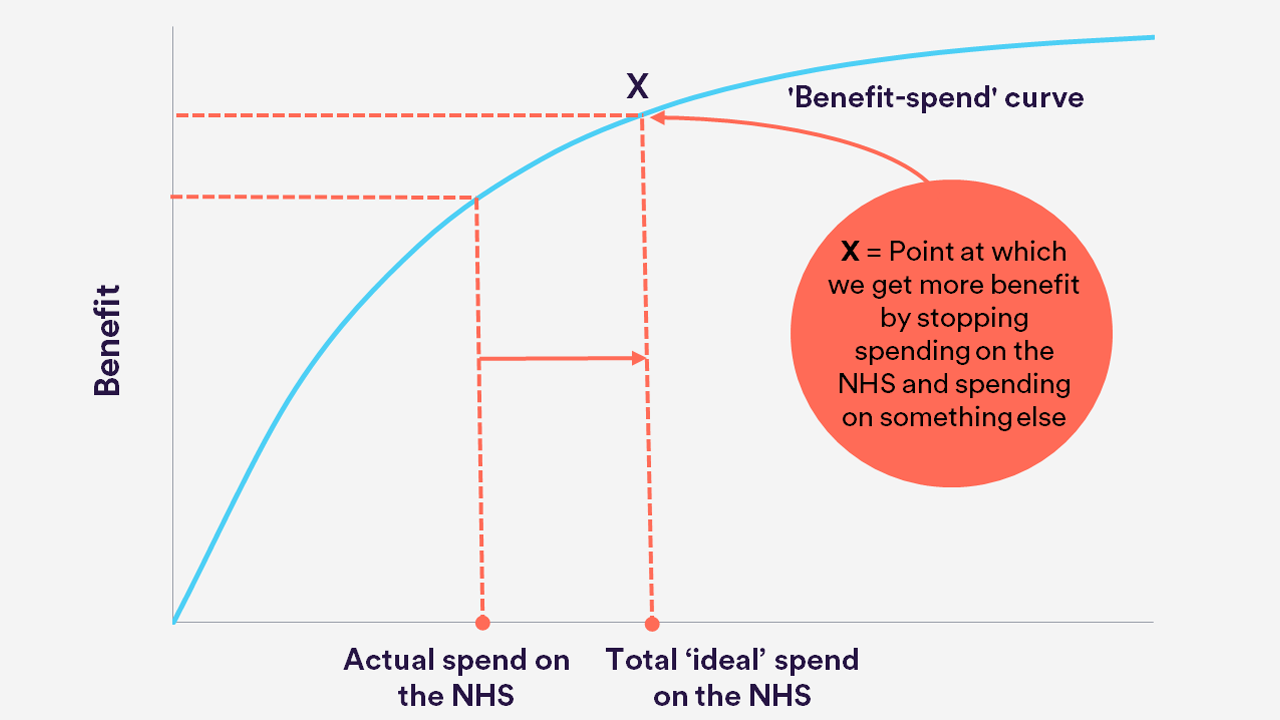In today’s final Spring Budget, the Chancellor is not expected to give any additional money to the NHS. But that does not necessarily mean the NHS could not use more money. Indeed, hospitals have continued to post staggering deficits. And the next fiscal year could be even harder, with spending per head due to flat line.
But funding for health and social care is a complicated issue, and sometimes it’s good to step back and take in a bigger picture. We could spend more on health care, but would it necessarily buy more health? Below I outline 13 reasons to fund the NHS in the longer term. I also throw in a healthy dose of scepticism and provide a few counter points as I go along.
1. Because we want to
We love the NHS. Poll after poll of the public’s views about the NHS invariably rank it as one of Britain’s most loved and admired institutions. If you can’t treat the one you love, then whom can you?
On the other hand… we may love the NHS, but is this really a good enough reason to spend more on it? Perhaps it’s precisely the things we don’t think make Britain great that need more money. For example, education, or maybe social care. Perhaps further investment in these areas would make us proud of them?
2. Because we’re worried about the NHS
Perhaps because we love it, we also fret about it. For nearly a decade from 1997, the NHS topped the public’s concerns about Britain. More money and shorter waiting lists eventually filtered through to our collective view about the NHS so that by 2008 only one in ten of us had concerns about the NHS. But the latest polling shows the NHS overtaking immigration and the economy as our chief worry. Time to spend a bit more then?
3. Because we’re getting richer
Apart from the odd dip during recessions, the nation’s wealth (Gross Domestic Product, or GDP) has increased over time and – recessions and global financial meltdowns aside – is likely to grow in future. Historically, as GDP increases so too does spending on the NHS. If the past is any guide, as we get richer we’ll want to spend more of that extra cash on health care.
On the other hand… while the past may be a guide to the future, it might not.
In any case, compared to other countries, the UK seems to be spending about as much as one might expect given its GDP.
4. Because it’s a vote winner
Decisions about what to spend on the NHS are taken by Government. Governments are elected, and any political party seeking election would be foolish to ignore the electorate’s sentiment about the NHS (see reason one). Since 2010 we have seen enormous real-terms cuts in public spending, but the Government has perhaps heeded public sentiment on the NHS by giving it a real-terms increase in funds relative to most other departments.
On the other hand… these real-terms increases were way behind what the NHS reckoned it needed to cope with increasing demand. Historically, spending on the NHS has been increasing at around four per cent each year in real terms; but over the ten years from 2010 to 2020 it will only increase at around one per cent. This leaves a big shortfall in funding.
5. Because we need to
The biggest users of the NHS are, not surprisingly, older people. The average 85-year-old costs the NHS around eight times more compared to the average 25-30-year-old. The British population is not only growing – up 12 per cent over the next 20 years – but getting older too; the number of people aged over 75 will be 73 per cent higher by 2036. We need to spend more just to keep pace with demographic changes.
On the other hand… while older people may be big users of the NHS, the average future 75-year-old is likely to be healthier than the current 75-year-old and, hence, need less health care. And while demographic changes have driven historic increases in spending, they tend to account for a relatively small share of the growth in NHS spending.
6. Because it costs more
The NHS buys a very select group of goods and services – syringes, drugs, doctors, MRI scanners. Historically, the prices of these things have tended to rise faster than broader measures of inflation, such as the Retail Price Index (RPI), or the even broader measure of economy-wide inflation, the GDP deflator. So, just keeping up with NHS-specific inflation requires increases in spending above the ‘general’ rate of price increases in the economy.
On the other hand… while higher NHS-specific inflation may have been a feature in the past, it has not been one much recently. This slower inflation rate is mainly due to government policy since 2010 to cap the growth of public sector employees’ wages – not a policy that can be continued indefinitely.
7. Because it’s difficult to improve productivity in health care
The productivity (crudely, outputs – the number of musical performances, say – divided by inputs – mainly the number of musicians and their instruments) of string quartets has fallen considerably since Mozart’s day. We could improve productivity by sacking a member and getting the others to cover their music. But what we’d end up with is unlikely to be a quality performance (and certainly not a quartet). And because we can’t pay musicians' 18th century wages in the 21st century, string quartet productivity has fallen over time.
Like string quartets, health care is also labour intensive and finds it difficult to generate and sustain improvements in productivity. If we want more health care, as reason one might suggest, then we’re going to have to pay more rather than rely on it generating ever bigger bangs per buck to cover the gap with demand and increases in staff pay (see reason six).
On the other hand… while there is some truth in the argument about how difficult health care systems find generating ever-increasing bangs per buck, it has managed to improve its productivity over time. And, since 2002, average productivity increases have matched other sectors of the UK economy – though that may partly be due to the impact of the 2008 recession on productivity in the economy.
8. Because we’re short of doctors
The NHS is, famously, one of the biggest (single) employers in the world behind the Chinese army and the Indian civil service. Around one in 20 of the entire UK workforce works for the NHS. Nevertheless, the UK lags behind others in the number of doctors and nurses it employs in its health care system.
On the other hand… accurate comparison with other countries is tricky; the UK figures are an underestimate as they only include NHS doctors while other countries’ include doctors in the private sector too. So we may not be as under-doctored as we think. What’s more, another way of looking at these numbers is that we get by with fewer doctors because they are more efficient than their German, Swiss and Norwegian counterparts.
9. Because other countries spend more
For years the UK languished in the bottom half of virtually any international health care spending league table. Surely, if we are to keep up with the Johanssons (and Schmidts et al) we should spend more?
On the other hand… it turns out that when we started comparing our spending on a more like-for-like basis (in 2014) our health spending jumped compared to 2012, so that it’s about average compared to countries we consider our peers (such as the old EU-14 countries).
10. Because it contributes to the economy
The NHS doesn’t just produce hip operations and blood tests. These outputs have knock-on effects, which ultimately can be measured in terms of a healthier workforce, with fewer absences due to sickness. By no means conclusive, the big boost in NHS spending from 2000 to 2009 coincided with a 22 per cent drop in sickness absence days. The very small increases in NHS spending since then seem to match a flat lining in sickness absence. The NHS doesn’t just alleviate disease but also improves the economic wellbeing of the country.
On the other hand… while the rhetoric is good, the evidence is thin (and difficult to extract). Given the main clientele of the NHS (see reason five), it is perhaps debatable whether this is an argument for more spending on the NHS.
11. Because saving lives is more important than anything else
What is the value of a life? Surely, if not infinite, then very large indeed. Spending more on the NHS will mean more lives saved. Drugs currently rejected by NICE as not cost effective enough could be provided, not just improving people’s quality of life but averting early (preventable) death.
On the other hand… of course my life (and yours) is worth everything. Yet, as individuals we take decisions every day (getting out of bed, crossing a busy road) that implicitly place a finite (and actually quite small) value on our lives. Why should Governments take a contrary view?
12. Because more spending on private care is inequitable
If we do want to spend more on health care, we could spend more directly out of our own pockets on care provided privately. That’s fine. But – Economics 101 – prices and ability to pay will mean the less well-off will be denied care. We tend to be communists when it comes to health care: from each according to their ability to each according to their needs.
13. Because we still want more health care than other things
Now we come to the crunch. The question one really needs to consider is the one an economist would ask: at what level of NHS spending would another pound spent on the NHS give more benefit if it was spent on something else? In other words, spending more on health care means less on other things – education, social care, personal disposable income – and there will come a point when the loss felt from not spending on these other things outweighs the benefits received from spending on health. And that point is pretty likely to be more than we currently spend on the NHS.
On the other hand… it may be more, but we don’t really know for certain – and it's not easy finding out where that point is.
We would need to find out what the benefits are of spending our nation’s resources on all other non-NHS things, so that we could calculate the point on the ‘benefit-spend’ curve at which we would get more benefit per pound by switching to spending on non-NHS things. And as people’s views and values differ, we would also need a way to reconcile these differences – not just on the NHS ‘benefit-spend’ relationship, but for all of the millions of other ways of spending our money.
If the economist’s approach is theoretically sound but practically impossible, where does this leave arguments to spend more on health care? Ultimately the decision is a choice for all of us. Now, if only we could organise a referendum on whether we should spend more on the NHS…oh, wait…
Convinced we should spend more on the NHS? We've created an interactive tool that allows you to decide how much more money you would give to the NHS and social care system and what it could buy.
John presented on the funding pressures facing the NHS and social care at last week's Health Policy Summit. You can watch his presentation on the video below.
Suggested citation
Appleby J (2017) '13 reasons (and some counter arguments) to spend more on the NHS'. Nuffield Trust comment, 8 March 2017. https://www.nuffieldtrust.org.uk/news-item/13-reasons-and-some-counter-arguments-to-spend-more-on-the-nhs
-
Updated 08/03/2017
-
Two additional charts were added to supplement analysis for points three and four.

